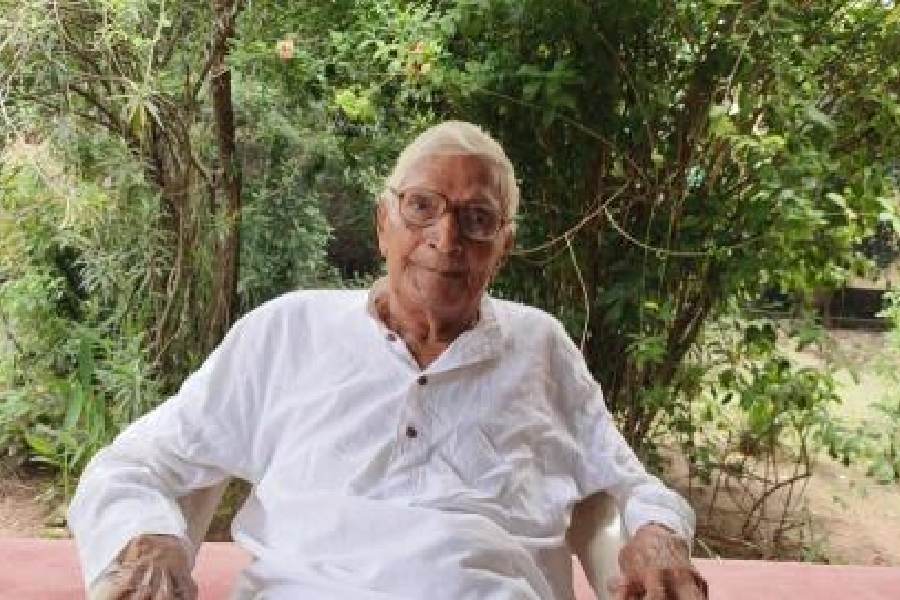Suniti Kumar Pathak, a scholar chosen by Jawaharlal Nehru to train the army in Tibetan at Ladakh during the Sino-Indian War, passed away at his Abanpally residence in Santiniketan.
He was 100.
Rashtrapati Award winner and Indologist Pathak was a key figure in the establishment of India-Tibetan studies at Visva-Bharati.
Manabendra Mukhopadhyay, the head of the Bengali department at Visva-Bharati and a researcher on Pathak's work, said Pathak was one of the foremost scholars on Indo-Tibetan relations, Buddhism and Indology.
"Pandit Nehru had taken Pathak to help the Indian army with translation and training in Tibetan, for strategic reasons during the 1962 war. Later, he sought Nehru's permission to come back to Visva-Bharati and further pursue a life in academics," said Mukhopadhyay.
"He was an authority on Tibetan, Pali, Sanskrit, Mongolian, Chinese and Prakrit," he said, adding that Pathak had extensively travelled on foot in some of the remotest parts of the Himalayas, collecting field notes for his research and the 200-odd books he authored.
He taught in many universities around the world as a visiting professor.
In addition to the Rashtrapati Award, he received the Manjushree Award and the Sahitya Parishad Award. He was also honoured by the Mahabodhi Society.
After retiring from Visva-Bharati in 1984, he lived in Santiniketan till his demise.
Visva-Bharati acting vice-chancellor Binoy Kumar Saren, academics and admirers visited Pathak's residence on Thursday. His mortal remains were taken to Chhatimtala, the historic site of meditation for Tagore's father, Maharshi Debendranath Tagore.
"He was a pillar of Visva-Bharati.... His demise is truly the end of an era," said Kalpika Mukhopadhyay, a retired teacher of Sanskrit at Visva-Bharati and one of Pathak's first students.











